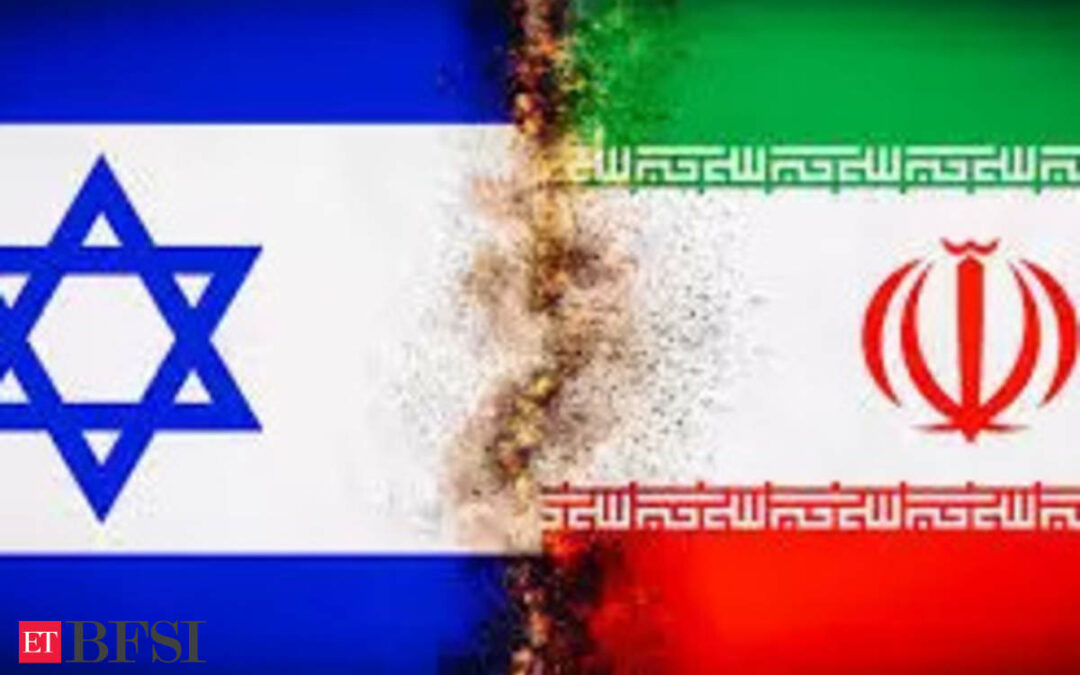Iran fired over 300 projectiles, including around 170 drones, cruise, and over 120 ballistic missiles at different speeds and altitudes on Israel in an apparent retaliation for a deadly strike on its consulate in Damascus, Syria. Most of this volley of drones and missiles directly fired by Iran on Israel for the first time from its territory was successfully defused by Israel because of the strong regional coalition and effective deployment of high-tech systems built to withstand such attacks. But this extensive onslaught marks another flashpoint in the Israeli-Hamas conflagration and a tipping point transcending a shadow war between two of the Middle East’s most implacable foes.
The Iranian war has historically been mounted by largely using foreign proxies, such as Lebanon’s Hezbollah militia and the Yemenis Houthis. This shadow war has had three distinct but closely interrelated elements- Iran’s nuclear program, disruptions in maritime shipping, and the situation in Syria and Lebanon.
To be sure, this proxy war has been fought bitterly over land, sea, air, and, in cyberspace for a long time in the Middle East. But this calamitous development constitutes a significant worsening of the geopolitical situation in general and the Middle East in particular.
There is a compelling need for a sense of balance and proportion. No World War III is on the anvil, at least not yet, and there are no signs of an apocalyptic moment. There is, however, a clear possibility, nay likelihood, of horizontal escalation and retaliatory and even deterrent strikes by Israel.
This thesis can be substantiated by the fact that the Israeli war Cabinet member Benny Gantz minced no words when he averred: “We will exact a price on Iran, in the manner and at the time that is right for us”. Finance Minister Bezalel Smotrich urged a response that “resonates throughout the Middle East,” and National Security Minister Itamar Ben Gvir said Israel should “go crazy”. Intimidating, scary words, these!
The Iranian verbal offensive was no less strong. Iran’s President Ebrahim Raisi warned Israel against a “reckless” retaliation, lest it would face “a decisive and much stronger response”. Given such intransigent stands, the Gulf states, particularly Saudi Arabia and the United Arab Emirates, are attempting to contain this war from escalating and devastating the entire Middle East and North Africa (MENA) region.
Pathway to the Future
Going forward, the stand of the government of the USA is likely to be a major factor in this rapidly evolving situation- a situation, where the cessation of hostilities in Gaza becomes more unlikely anytime soon, a temporary cease-fire is not on the cards, the release of Israeli hostages nowhere in sight and moving toward a two-state solution for Israel and the Palestinian territories is becoming even more intractable.
Given the complexity of this multi-layered crisis, Israel has three options on the table. First, refrain from taking the escalator ladder because of the successful repulsion of this attack. Second, launch a retaliatory strike. Thirdly, this is evidently the worst-case scenario, where “all hell breaks loose”. At this stage, it is difficult to say which option would be resorted to but there is sustained pressure and counsel from all sides not to take the escalatory route. Given the widely held Israeli belief that a nuclear-armed Iran is an existential threat to Israel, retaliation cannot be ruled out of the decision-making matrix.
Macroeconomic Implications
This saber-rattling has wide-ranging ramifications and repercussions across geographies, economies, and sectors with volatility in bond and equity markets though temporarily. Bond prices will fall, the cost of credit will rise for companies, crude prices will rise and stock markets will fall both because of reduced profitability of the corporate sector and heightened uncertainty. A sustained reduction in oil supply and consequently surging crude oil prices would raise domestic inflation and interest rates could remain persistently high for long. The disconcerting mix supports the safe-haven dollar and gold.
Sectoral Impact
While surging oil prices in the aftermath of the Iran-Israel war have a cascading macro-economic impact across sectors that could trigger a sell-off, oil-based sectors like automobiles, transportation, aviation, paints, tyres, cement, and chemicals could take the greatest hit. The market could be disrupted by the war-related risk but hopefully, the supply-demand oil dynamics would continue to be unfettered.
The Indian stocks with an Israeli connection include Adani Ports, Sun Pharmaceutical, Dr Reddy’s and Lupin, NMDC, Kalyan Jewellers, and Titan. Further, oil marketing companies could be adversely impacted. The war could slacken India’s plan of building an India-Middle East-Europe Economic Corridor as reflected in the prices of railway stocks like IRCON, Jupiter Wagons, and RVNL.
With crude oil output of almost 3 million barrels per day (mb/d) i.e., about 3% of the global production, Iran is a major oil producer and exporter and more importantly, 20 % of the world’s crude oil supply passes through the Hormuz Strait (60 % of Indian crude supply is accounted for from the Hormuz Strait), the crude oil prices per barrel per day could rise from the present level of $91(last month the Indian crude oil basket was under $85) to well over $100.
In the case of the Indian economy, this surge in oil prices would negatively impact the triple deficits of the trade deficit, current account, and fiscal deficit.
Since apart from macroeconomic fundamentals and the growth prospects of the firm and the industry, the capital market is also sentiment-driven, this war could negatively impact the BSE and Nifty levels. But contrary to popular perception, extensive pessimism is unwarranted. It would be inappropriate not to factor in the strength and resilience of the Indian economy for a comprehensive assessment and perspective.
India’s Cognizable Dilemmas
India’s strategically time-tested relationship with both Iran and Israel is fraught with difficulties on the policy and operational front. Israel has long been a trusted defense and security partner. Iran is a major crude oil supplier and has shared concerns about terrorism, the Afghanistan landscape, and the geo-strategically significant Chabahar port. Gathering storms, uncertain times, difficult days ahead.
(Dr Manoranjan Sharma is Chief Economist, Infomerics Ratings. Views are own)









